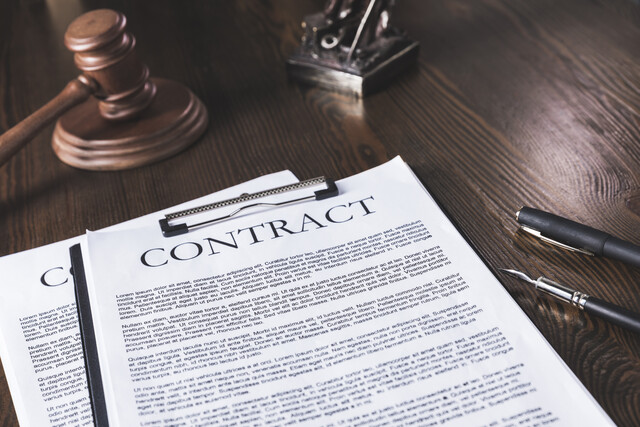Introduction
A large part of planning for the distribution of your assets is taking inventory of what you have. This is such an important process that there are several computer software programs devoted to this task alone. If purchasing a separate computer program to record an asset inventory seems like it may be too much for you needs, you may also use a program already on your computer such as Microsoft Access or Excel. Both of these programs have templates that allow you to create an inventory database or spreadsheet document, respectively. You would be wise to print out a copy of this document and place it in your document safe or safety deposit box. You should also "back-up" your document on a memory stick or removable hard drive.
In addition to creating an asset "list" either via computer or by hand, many people choose to create a photo journal of valuable assets. Doing so will ensure that there is "physical" proof of particular assets so that your heirs know exactly what is in the estate for reference. It is also quite handy for insurance purposes! This article will discuss the proper methods for taking inventory of your assets.
Asset Inventory Software Programs
There are several software programs that can be used to create a thorough inventory list easily on your pc or mac. Two programs that are specifically made for keeping track of assets are NetSimplicty's Visual Asset Manager and Computerize Your Assets. Visual Asset Manager is a visual inventory and asset management tool and is made for business use rather than for solely personal use. However, if you have many assets including real estate and/or own a business that you would like to track, then this program may work well for you. The program can be customized to suit your individual needs. The company describes their product as follows:
Visual Asset Manager software allows you to quickly document what your company owns, where it's deployed, and what it's valued at -- from any web browser.
With Visual Asset Manager you can:
- Track and report ownership, leases, asset depreciation, and maintenance
- Map assets to floor plans and owners, and track moves
- Scan and print barcodes
- Automatically discover and audit your Windows network workstations
- Manage check-in and check-out of shared assets
Another program that is made specifically for asset inventory is Computerize Your Assets. This program is smaller and better suited to individual and/or home asset recording. It is flexible in design and perfect for those with few or many assets to track. It is also priced reasonably enough to justify the cost. It allows you to add digital or scanned photos of your assets and offers unlimited categories, items and locations. It also provides secure encryption so that others cannot gain access to your information with your permission.
If you already have Microsoft Word, Excel or Access on your computer at home, then these programs may also be used to create simple asset documents. Word can be used to create lists including an image of the asset. Excel can be used to create spreadsheet lists of assets while also allowing you to perform mathematical equations including asset depreciation and others. Access is a very powerful program which allows you to create simple to intricate databases. The "wizard" can be used to create a database specifically for home asset tracking. Of all three programs, Access is probably the best suited for creating a document of this sort. If you are not sure how to use these programs for these purposes, you can purchase books, cd's and online classes on the subject. Instructor led classes are also usually offered at local community colleges, high schools or computer schools.
The Elements of an Asset Inventory
For many people it is getting started that is the most difficult. Most folks aren't sure what should be included in a complete asset list. For purposes of asset inventory and for insurance purposes as well, there is quite of bit of information that should be included. While this may seem like a chore to do (and it is a bit of a chore) it will save you immeasurable hassle later on. Not only will it provide a complete record for your heirs but it will also be a great tool if you need it for insurance purposes during your lifetime.
A good list of things that should be included on your asset record is given below. This list is by no means exhaustive, so be sure to include anything that you feel is pertinent. Likewise, exclude those things that do not apply to your individual circumstances.
Personal Information that you should include in your asset document:
- Your Full name
- Passport Number
- An example of the Signature used in your Last Will and Testament
- Income Tax Number
- Social Security Number
- Account names, banks and numbers
- Location of important documents
- Location of your last Will
- The name of the person or office that drew your Will with phone number
- Executor(s) names and phone numbers
There are several things you should include in your personal asset inventory. Be sure to include account numbers, bank names, phone numbers, contact info or any other information that is necessary to access the asset as well. The list below is offered to help get you started:
- Safe Deposit Box
- Bank Accounts
- Real Estate Properties
- Insurance policies
- Shares
- Unit Trusts
- Art
- Antiques
- Bonds
- Businesses
- Cars
- Other Assets
- Liabilities
- Internet Assets
- Email accounts
Conclusion
Asset inventory is a very important tool in estate planning. It will provide a clear "road map" for your heirs after you are gone. It will also provide a great reference in the event of an emergency for insurance purposes. You can draw a list by hand, use a computer and software that you already have, or use software specifically created for this task. No matter the method, it is vital that you do this as soon as you possibly can. It takes time and patience, so be sure to set aside a few hours or days of time, depending on how much you have to record. It is wise to include pictures with the description of each large asset. If you are going computerized, be sure to take and upload digital images for this use. If you are creating your list by hand, regular 35mm pictures will serve your purposes.
Introduction
People of every age and socio economic level find excuses to not draw a will. Indeed, it is difficult to think about death and plan for when you will no longer be with family and friends. However, the fact of life is that we are all going to die someday and it is best to leave clear instructions on who will care for minor children, what to do with your property and assets and what your precise wishes are when the time comes. The hope is that we all live very long, fruitful and abundant lives and the majority of us will, however, it is wise to plan for the unexpected. This lesson will address some of the excuses people use to avoid making a will and the reasons why those excuses are not valid; it will also discuss what happens if you have a will and what could happen if you do not. Lastly, we will talk about your options when creating a will.
Excuses, Excuses
This section covers the top five excuses people use to not draw a will and a counter answer explaining why those excuses are not valid. Think about the excuses you have made in the past, are any of them on this list? Do you have loved ones who make excuses such as this to avoid drawing a will? Read on to learn why everyone needs a will.
Excuse 1: "My assets and property are so few that it doesn't matter if I have a will."
Counter Answer: Nearly everyone has some type of property. Even if your belongings seem sparse to you and you don't own a home, consider how much money the things you do have would bring in if everything was sold off. Do you have a car? A computer? Furniture? A stereo and television? An iPod? Jewelry? A 401k plan at work? A savings account? A work issued life insurance policy? Do the math. If you tallied up all of your property, how much would it be worth at an auction? Even those with few assets may have property totaling in the thousands of dollars. That money could go to which ever person steps in and takes control after you die, or it could go to who you designate.
Excuse 2: "I'm too young to worry about drawing a will."
Sadly, accidents, disease, and myriad other situations often take peoples lives before their time. Again, most of us live well into old age and, in fact, many of us are living past the age of 100 in this century, however, unlikely circumstances need to be considered, particularly if you have young children who need to be cared for. If you are a single parent, even a short will drawn and notarized will ensure that your minor children are cared for by whom you choose in the unlikely event of a fatal accident or unexpected illness. Also, you want to ensure that your spouse receives all of your assets in the event of your untimely death. Lastly, your will should also make provisions for an unlikely common accident which leaves both you and your spouse unable to care for your minor children.
Excuse 3: "All of my property is owned jointly with my spouse."
Counter Answer: Having all of your property held in joint ownership my help if only one of you suffer a disaster or pass away, but it will not help if you suffer a common disaster. In the event of a common disaster the state will decide where your assets will go if you don't have a will. Tax experts also advise that using this method of ownership in lieu of a formal will is a bad idea because the first spouse to be deceased will lose his or her lifetime estate tax exemption. This occurs because two people are, in essence, sharing the estate, and thus are only given one estate tax exemption. They are one unit, so they receive one exemption. Not having a will in this case could cost your estate thousands of dollars.
Excuse 4: "My husband or wife will get everything anyway."
Counter Answer: Without a will your spouse may not get everything. Your children may decide to step in and take their inheritance now and convince the court to divide the estate between your spouse and children. This is particularly true when dealing with second marriages. Likewise, if you don't have a will, are re-married and have children from a first marriage, those children may not receive anything if you do not make provisions for them in a formal will. Lastly, what if you and your spouse die at the same time? Do you want a relative making decisions for your estate and for the care of minor children? All of these issues come into play if you do not draw a valid will.
Excuse 5: "I never married, and I don't have children, so I don't need a will."
Single people who don't have any obvious heirs need a will just as well as anyone else does. A distant relative that you my not like or even know could end up with your property or it could be distributed in the way the state deems fit. Even if you don't have children or a spouse, you may have friends who could benefit from the inheritance of your estate. You may have one or several charities you feel are doing good work and could use the money. No matter the circumstances, if you don't leave a will directing exactly how your property should be distributed, then someone else will make these decisions for you after you are gone.
People use variations of the five excuses above to avoid drawing a will. The ultimate excuse and underlying reason people avoid this task is because they don't want to deal with or talk about their own death. While understandable, this is a huge mistake. Not having a will and making excuses to not have one will cost more in the long run and is essentially the equivalent to leaving everything to chance. Take the time to create a will on your own or to have one drawn professionally, it is worth the extra effort and your family and friends will be grateful that you did. Be sure to read lesson ten if you are single, that lesson is devoted to estate planning for those who are unmarried.
If the five excuses and their counter arguments were not enough to convince you to draw a will perhaps this next section will. In this part of the lesson we will look at seven excellent reasons to have a will and seven things that could occur if you do not have one.
Available Options for Drawing a Will
Drawing a will does not have to be a long, difficult process, in fact, if you have already given some thought to where you would want your assets to go, to whom the care of your children should be entrusted to and who you would want to be the executor or executrix of your estate, then the job should be all that much easier. There are many options available for every budget. Below is offered several of those options for your investigation.
Blank Forms
Of all the options, holographic wills are the least expensive of all. Depending on the laws in your state, a will can, as said in a previous lesson, be as simple as a few lines of text with your signature at the end. However, it is advisable to put a bit more effort into the will than that. Fortunately, the internet has made many options for will creation available that were not easily accessible in the past. The internet is teaming with sites that offer inexpensive forms you can buy and print out or have mailed to you. These are essentially blank wills that include the elements necessary for the state that you live in. Fill in the blanks, have the will notarized with two uninvolved witnesses, make a copy to store off-site and you are done.
Will Preparation Web Sites
Another option is using a Web site such as www.legalzoom.com. Using sites that walk you through the process takes a lot of the guess work out of filling out pre-printed forms. This method is a bit more expensive than purchasing blank forms, but it may be worth the extra few dollars if legal terminology is confusing to you and you would like the added benefit of revisions and review by a legal expert. The process takes about five to thirty minutes and is simple. After answering a series of questions on the site, a legal professional will review the answers, and if there are no ambiguities, they will prepare the will and mail it to you in about two days. If they need further clarification or believe that your assets warrant a more complicated will, they will contact you for further information before preparing and sending the will. The prices vary according to the package you choose, but all are under $130.00 and include printing on archival paper. The most basic package is under $100.00. Essentially, you can have a will created, looked over by a legal professional and sent to you for what it costs for dinner out.
Will Preparation Software
Programs such as Quicken's WillMaker allow you to create and print your own will, at home, at your leisure. Having the program will also allow you to update and revise at your whim. As with all wills, it is advisable to have the final document notarized before two uninvolved witnesses. The program also includes other estate planning tools such as health care directives, a financial directives document, powers of attorney, etc. It can be purchased for under $50.00 dollars, depending on the version, from several internet software sources.
The Old Fashioned Way
Hiring an attorney to draw a will is a preferred method if you have many assets and heirs. The average price for an attorney drawn will is $500.00 dollars, but can be as high as several thousand if trusts, powers of attorney, health care directives and other documents are involved. If you plan on using an attorney to draw your will, be sure to find one who specializes in estate planning. Their knowledge could save you thousands in taxes and fees.
Conclusion
Having a will is not only for those with many assets, loads of real estate and a complicated family situation. Anyone who has minor children should most certainly have a will. Also, anyone who has property (even if it seems small) should have a will. With all of the options available for inexpensive will creation, there really is no excuse to not have a will drawn or to write one yourself.






























